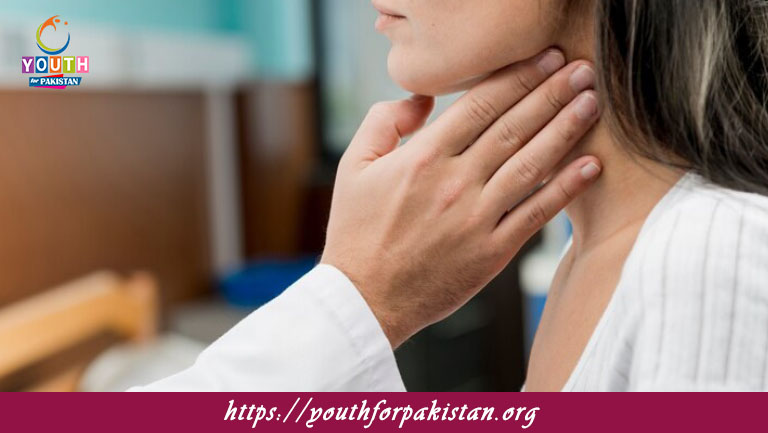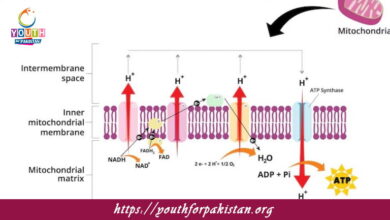Endocrine Glands MDCAT MCQs with Answers

Welcome to the Endocrine Glands MDCAT MCQs with Answers. In this post, we have shared Endocrine Glands Multiple Choice Questions and Answers for PMC MDCAT 2024. Each question in MDCAT Biology offers a chance to enhance your knowledge regarding Endocrine Glands MCQs in this MDCAT Online Test.
Which of the following is not an endocrine gland?
a) Thyroid gland
b) Adrenal gland
c) Sweat gland
d) Pituitary gland
The thyroid gland primarily produces:
a) Insulin
b) Adrenaline
c) Thyroxine
d) Estrogen
Which gland is known as the “master gland” of the endocrine system?
a) Thyroid gland
b) Pituitary gland
c) Adrenal gland
d) Pancreas
The adrenal glands are located:
a) On the top of the kidneys
b) In the neck region
c) In the chest cavity
d) Near the liver
Which hormone is secreted by the pancreas and regulates blood glucose levels?
a) Insulin
b) Thyroxine
c) Cortisol
d) Adrenaline
The primary function of the parathyroid glands is to:
a) Regulate metabolism
b) Control calcium levels in the blood
c) Manage stress response
d) Produce sex hormones
The hormone melatonin is produced by the:
a) Thyroid gland
b) Pituitary gland
c) Pineal gland
d) Adrenal gland
Which gland produces adrenaline and noradrenaline?
a) Thyroid gland
b) Adrenal gland
c) Pituitary gland
d) Pancreas
The main hormone produced by the thyroid gland is:
a) Insulin
b) Growth hormone
c) Thyroxine
d) Melatonin
Which hormone is responsible for regulating metabolism and energy levels?
a) Insulin
b) Thyroxine
c) Cortisol
d) Estrogen
Which of the following is an exocrine function of the pancreas?
a) Production of insulin
b) Production of glucagon
c) Secretion of digestive enzymes
d) Regulation of blood sugar
The hypothalamus communicates with the pituitary gland via:
a) Blood vessels
b) Neural signals
c) Hormonal signals
d) Direct contact
Which gland is responsible for producing cortisol?
a) Thyroid gland
b) Pituitary gland
c) Adrenal gland
d) Pineal gland
The anterior pituitary gland produces which of the following hormones?
a) Melatonin
b) Thyroxine
c) Growth hormone
d) Insulin
The primary function of the thymus gland is:
a) Producing hormones related to metabolism
b) Regulating blood calcium levels
c) Maturation of T lymphocytes
d) Producing adrenaline
Which hormone is secreted by the adrenal cortex?
a) Adrenaline
b) Insulin
c) Cortisol
d) Thyroxine
Which gland is involved in regulating the body’s stress response?
a) Pituitary gland
b) Pineal gland
c) Adrenal gland
d) Thymus gland
Which hormone is responsible for the body’s “fight or flight” response?
a) Cortisol
b) Thyroxine
c) Insulin
d) Adrenaline
The hormone that stimulates the production of milk in the mammary glands is:
a) Oxytocin
b) Prolactin
c) Insulin
d) Thyroxine
Which of the following hormones is produced by the thyroid gland?
a) Insulin
b) Cortisol
c) Thyroxine
d) Adrenaline
The primary role of the parathyroid hormone (PTH) is to:
a) Regulate metabolism
b) Increase blood calcium levels
c) Decrease blood glucose levels
d) Promote growth
Which gland is located in the base of the brain and controls other endocrine glands?
a) Thyroid gland
b) Pituitary gland
c) Adrenal gland
d) Pineal gland
Which of the following hormones is produced by the pancreas?
a) Insulin
b) Cortisol
c) Thyroxine
d) Adrenaline
The pineal gland produces which hormone that regulates sleep-wake cycles?
a) Melatonin
b) Adrenaline
c) Thyroxine
d) Prolactin
Which hormone is released by the adrenal medulla?
a) Cortisol
b) Insulin
c) Adrenaline
d) Thyroxine
The main function of the thyroid gland is to:
a) Regulate calcium levels in the blood
b) Produce hormones that regulate metabolism
c) Control stress responses
d) Promote growth and development
Which hormone stimulates the release of cortisol from the adrenal glands?
a) Growth hormone
b) Thyroxine
c) Adrenocorticotropic hormone (ACTH)
d) Insulin
The hormone that helps regulate sodium and potassium levels in the body is:
a) Aldosterone
b) Insulin
c) Melatonin
d) Thyroxine
Which gland produces the hormone that regulates the circadian rhythm?
a) Pineal gland
b) Adrenal gland
c) Thyroid gland
d) Pituitary gland
The primary function of insulin is to:
a) Increase blood glucose levels
b) Decrease blood glucose levels
c) Regulate blood calcium levels
d) Control metabolism
Which gland is involved in the regulation of reproductive hormones?
a) Thyroid gland
b) Pituitary gland
c) Pineal gland
d) Adrenal gland
The hormone responsible for stimulating the production of testosterone is:
a) Follicle-stimulating hormone (FSH)
b) Luteinizing hormone (LH)
c) Adrenocorticotropic hormone (ACTH)
d) Thyroxine
The hormone responsible for regulating the sleep-wake cycle is:
a) Cortisol
b) Melatonin
c) Adrenaline
d) Thyroxine
Which of the following hormones is produced by the pituitary gland?
a) Thyroxine
b) Adrenaline
c) Growth hormone
d) Insulin
The hormone that plays a key role in the body’s stress response is:
a) Thyroxine
b) Cortisol
c) Insulin
d) Adrenaline
Which gland is responsible for the production of sex hormones?
a) Thyroid gland
b) Pituitary gland
c) Adrenal gland
d) Pineal gland
Which hormone is secreted by the ovaries?
a) Testosterone
b) Estrogen
c) Insulin
d) Cortisol
Which hormone is responsible for regulating calcium levels in the blood?
a) Calcitonin
b) Insulin
c) Thyroxine
d) Adrenaline
Which hormone is produced by the testes?
a) Estrogen
b) Testosterone
c) Insulin
d) Melatonin
The function of the thymus gland is primarily associated with:
a) Metabolism
b) Immune system development
c) Stress response
d) Calcium regulation
Which gland produces hormones that regulate the body’s metabolic rate?
a) Pineal gland
b) Thyroid gland
c) Adrenal gland
d) Pituitary gland
Which hormone is primarily involved in the regulation of blood pressure?
a) Cortisol
b) Aldosterone
c) Insulin
d) Melatonin
Which gland is involved in the production of erythropoietin?
a) Pituitary gland
b) Adrenal gland
c) Kidney
d) Liver
Which hormone increases blood sugar levels during stress?
a) Insulin
b) Thyroxine
c) Cortisol
d) Melatonin
The primary function of the endocrine system is to:
a) Control voluntary movements
b) Regulate metabolic processes through hormones
c) Support immune responses
d) Facilitate digestion
If you are interested to enhance your knowledge regarding Physics, Chemistry, Computer, and Biology please click on the link of each category, you will be redirected to dedicated website for each category.





